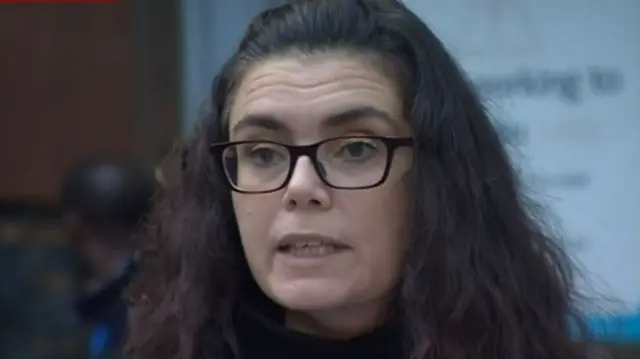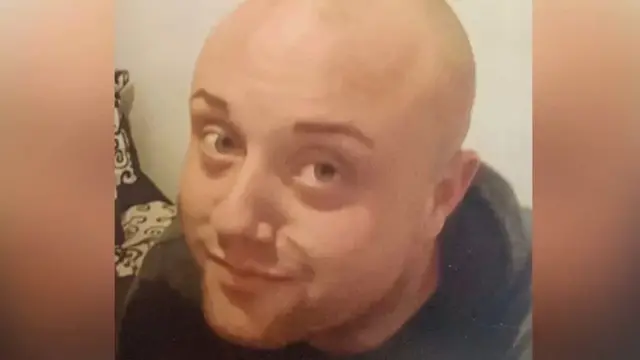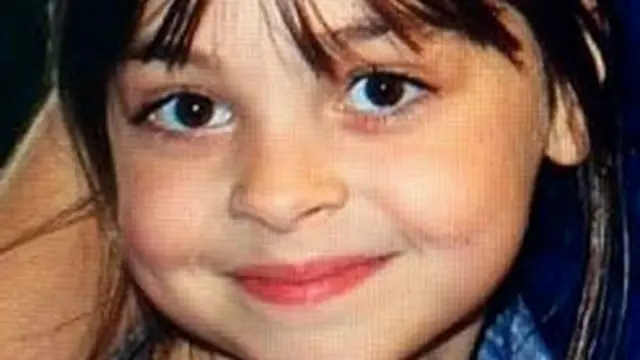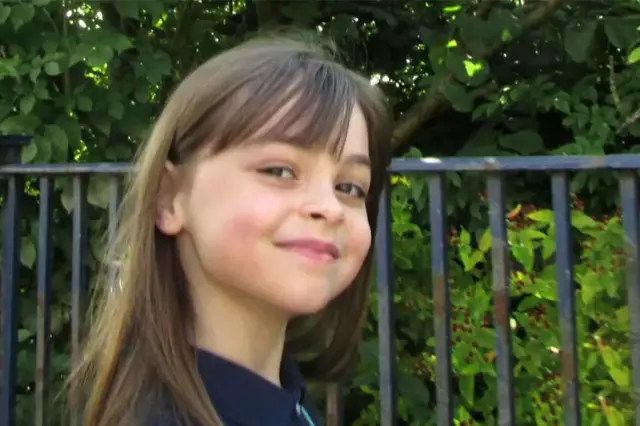Emergency services holding news conferencepublished at 16:03 GMT 3 November 2022Breaking
We're now hearing from spokespeople for the emergency services - who were criticised in the report. We'll bring you the top lines as we get them.
The Manchester Arena Inquiry has published a catalogue of failings and mistakes by the emergency services following the terror attack in 2017
It found police, fire and ambulance services failed to work together and communication between the three services was “non-existent”
The key police commander on the night was overwhelmed, and not enough paramedics were sent to help when the bomb exploded
The report says one victim - John Atkinson - could have survived had the emergency response not been inadequate
And it said it could not exclude the possibility that eight-year-old Saffie-Rose Roussos could have survived with better treatment
In response to the inquiry, Greater Manchester Police apologise and "fully accept findings" of the report
Meanwhile the fire service say their response was "wholly inadequate and totally ineffective"
The attack on the Ariana Grande concert was carried out by suicide bomber Salman Abedi
His brother, Hashem, has been jailed for at least 55 years for helping plan the attack
Edited by Owen Amos
We're now hearing from spokespeople for the emergency services - who were criticised in the report. We'll bring you the top lines as we get them.
Home Secretary Suella Braverman says she will "carefully consider" the recommendations made in the second report into the Manchester Arena attack.
"This report is a devastating reminder of the Manchester Arena attack and the horror of that night when 22 lives were lost, while countless others were changed forever," Braverman wrote on Twitter., external
"I'm thinking of them, the people who loved them, and everyone still affected by this appalling event.
"Without doubt, our emergency services show incredible courage when responding to incidents of this magnitude.
"It’s right that we reflect and work together to learn from this tragedy. I will carefully consider the recommendations made so far to strengthen our response."
 Image source, FAMILY HANDOUT
Image source, FAMILY HANDOUTWe've had more reaction from some of the victims' families.
Figen Murray, whose son Martyn Hett was killed in the blast, says she doesn't want to "play the blame game" - but stressed the importance of learning from the mistakes highlighted in the report.
"What we learned today will not bring Martyn or anyone else back, for that matter.
"What is important from this day forward is to learn from these mistakes so they don't happen to anyone else in future."
Murray urged the government to bring forward security legislation for venues - what she calls Martyn's Law.
The law, which Murray has campaigned for, would compel all public venues to have appropriate security procedures in place.
"This must-needed law seems to be constantly delayed. Had Martyn's Law been in place that night, we now know that precious lives would have been saved."
If you're just joining us, or need a recap, the second report from the Manchester Arena attack inquiry was published just over an hour ago.
Here's a rundown of some of the key findings:
The full report, titled Volume 2: Emergency Response, can be read here, external.
The second report into the Manchester Arena bombing makes 149 recommendations. Here's a quick summary of some of them:
The recommendations are to be monitored, including further progress updates, witness statements and more live evidence hearings in the summer of 2023.
Read the full report here., external
Chairman Sir John Saunders, speaking earlier today
Inquiry chairman Sir John Saunders: "We heard heartbreaking evidence of the injured... hearing the sirens of ambulances, knowing paramedics were close by, expecting their imminent arrival only for them not to arrive in the sort of numbers which were needed."
A solicitor who represents 11 victims' families in the inquiry has spoken to reporters in Manchester.
Kim Harrison says today's report confirms her and her clients' "greatest fears" about the "catastrophic failings" of the emergency services on the night of the attack.
Describing the report as damning, she says it's "totally unacceptable" that people were left dying while help should have been on the way.
"The complete and utter failure of the government and emergency services to recognise [the] mistakes [made after the 7/7 bombings in 2005] is wholly unacceptable," she says.

John Atkinson could have survived, according to the inquiry - but what happened to him?
Here's more from the Atkinson family statement:
"He was left, dying, without his dignity, on the floor when it should have been obvious to medics that he needed to get straight to hospital.
"As we know from witnesses, John kept asking if he was going to die.
"John must have known that he was dying and the pain that causes us is too great to put into words. This should simply never have been allowed to happen.
"The apology from North West Ambulance Service means nothing unless they act rapidly on this report to ensure that no family ever has to go through this horrific experience again.
"We welcome Sir John's promise to monitor the implementation of his recommendations. Talk is cheap, and actions speak louder than words.
"We will be watching to see what happens now. We thank the chair for his meticulous and fearless report. John will always be in our thoughts and in our hearts."
Here's a statement just in from John Atkinson's family - who the inquiry says could have survived with a better response from the emergency services.
"John was our son, brother, uncle, and friend.
"Everyone who knew him loved being around him. He always put others first. As today's report says, his working life was spent helping those in care and his kindness and generosity were evident for all to see.
"He lit up our lives, and there is less laughter in the world without him. Since his passing, our lives have been shattered.
"Today, the inquiry has answered our questions about John's death.
"It is now clear beyond any doubt that on the night of the bombing John was totally failed at every stage, both by the private medical providers at the Arena, ETUK and the emergency services.
"It is crystal clear that due to those failings, John died from injuries that he could and should have survived.
"As the report says, timely medical treatment to stop or slow John's catastrophic bleeding and get him to hospital would have saved him."

John Atkinson, who was 28
Watch: Timeline of Manchester Arena bomb response
 Image source, Greater Manchester Police
Image source, Greater Manchester PoliceSaffie-Rose Roussos, from Lancashire, was the youngest victim of the attack at just eight years old.
She was a huge fan of Ariana Grande, and her dad Andrew said she always wanted to be famous for singing and dancing.
Mum Lisa, who took her to the show, described her as a "beautiful, sensitive soul with an amazing magnetic personality".
Today, the inquiry report said her survival was "highly unlikely" but "not an impossibility with the best treatment".
Before the inquiry, her parents believed their daughter died within seconds of the bomb exploding, and that she had not suffered.
But at the inquiry they learned that Saffie had lived for an hour, and that she had died as a result of blood loss from leg injuries. Her legs were never given tourniquets or splinted.
As we've been reporting, the inquiry says John Atkinson, 28, could have survived the attack - had there been a better response from the emergency services.
Here's our interview with Ron Blake - who tried to save Mr Atkinson - who says "big mistakes" were made.
Manchester attack: It seemed forever to get help - bomb survivor
Sir John has now finished speaking. He says he hopes the Manchester Arena Inquiry will "make a difference" - and prevent the errors happening again.
"This is a hope which is shared by the home secretary and I hope that we can work together to achieve that aim," he says, wrapping up his speech.
"I am confident that all the rescue services are also determined that this should happen."
Sir John says that if there was an assessment beforehand, there would have been more paramedics and firefighters on scene faster, to help treat people as needed.
He added: "Instead, we heard heart-breaking evidence of the injured and the rescuers who were in the city room [foyer] hearing the sirens of ambulances, knowing paramedics were close by, expecting their imminent arrival, only for them not to arrive in the sort of numbers which were needed."
He says that if firefighters had got there as soon as they could have done, the removal of the injured would've been much safer and quicker.
Here's more from Sir John on senior members of the emergency services.
While some may not agree with the criticism, he says, people in "command positions" are relied upon to "make the right decisions when faced with a complex emergency".
None of them intended to make the wrong decisions, Sir John says - adding some weren't given the proper instruction themselves.
They also didn't want to put their workers in danger, he says.

 Judith Moritz
Judith Moritz
BBC North of England Correspondent
The Manchester Arena Inquiry report, external makes for intense reading.
At around 1,000 pages, it took all of the six hours allotted to accredited journalists to read and analyse.
At the start of the public inquiry, the chairman Sir John Saunders said he was not looking for scapegoats.
But his language is strong, and he prefaces this volume by acknowledging that some of his criticisms “may seem harsh”.
Words like “inadequate”, “unacceptable” and “failure” pepper the text.
Sir John says that he believes he has got to the truth of what happened.
That may give some comfort to the families of those who died but they, and many of those affected by the attack, will find much of the detail distressing and hard to accept.
Several have told me that this report will only feel valuable if it leads to real measurable change.
While not blaming lower-level members of the emergency services, the report makes strong criticism of some leaders.
It says that the two most senior Greater Manchester Police commanders on the night “made no effective contribution to the emergency response”, and that the force duty officer, who was responsible for initial command, was overwhelmed and overburdened.
Fire appliances from Manchester Central Fire Station drove away from, not towards, the incident.
They even drove past ambulances travelling in the opposite direction.
It was more than two hours before fire crews from Greater Manchester Fire and Rescue service arrived on the scene.
There were "very substantial problems" with the ambulance service response from a command perspective.
Too few paramedics were sent into the city room where the bomb exploded, and the approach to risk in that area was "unduly cautious".
Sir John is now discussing the individual members of the emergency services.
He says: "There was no evidence that individual firefighters or members of the ambulance service were anything other than ready and willing to carry out their job of protecting and saving life."
He continues that the firefighters were angry they couldn't go into the city room - the foyer - and help.
More now from the report , externalitself.
It analysed whether any of the 22 people who were killed in the explosion might have survived, if the emergency response had been different.
It finds that 20 of the victims suffered unsurvivable injuries.
The chairman says: "I am sure that inadequacies in the response did not fail to prevent their deaths."
But he concluded that 28-year-old John Atkinson died from leg injuries which were survivable, had he received the treatment he should have.
The report finds that "it’s likely that inadequacies in the emergency response prevented the survival of John Atkinson".
The chairman also says he "cannot exclude the possibility" that the youngest person to die, eight year old Saffie-Rose Roussos, could have been saved with better treatment.

Saffie-Rose Roussos, who was eight when she was killed